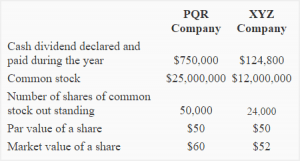Content

The CEO is also responsible for hiring C-level members of the executive team and firing those who don’t perform up to the standards set by the CEO. These executives help the CEO formulate strategy and implement the policies and directions set by the CEO and are in charge of managing their functional areas on the CEO’s behalf. Not every CEO who adopts the human-assets approach thinks that strategy belongs in the business units, but most do. Their companies, many of the CEOs in this category explain, are either too complex or, interestingly, too straightforward to make long-term strategic planning a wise use of the CEO’s time. Accordingly, they believe that their imperative is to hire and cultivate the kind of individuals who will act intelligently, swiftly, and appropriately without direct or constant supervision. And they believe the way to develop such individuals is by shaping the values and behaviors of virtually every member of the organization into “company way” values and behaviors through a coherent set of systems, programs, and policies.
- Direct, plan, or implement policies, objectives, or activities of organizations or businesses to ensure continuing operations, to maximize returns on investments, or to increase productivity.
- The Berkeley Chief Executive Officer Program has been designed to equip business leaders with the skills required to successfully navigate this era of uncertainty and transformation.
- Behind every company sits the Chief Executive Officer , who occupies one of the most glamorised jobs in the business world.
They may be representing the firm in front of the general public, the press, lawmakers or other regulators, employees, customers, suppliers, or any number of other parties interested in company operations. In many organizations, the Board will have final authority on hiring decisions at the C-level, but, in most instances, the board actually defers to the recommendation of the CEO.
Chief Executive Officer (CEO) Program
The https://personal-accounting.org/ almost always has a direct role in the business with responsibility for day-to-day oversight and the company’s success or failure. Although a CEO’s key responsibilities are generally the same from one organization to the next, exact duties can vary based on several factors, including the size of the company and whether it’s a public or privately held company.
There are other C-suite positions with titles such as chief digital officer, chief data officer and chief marketing officer, but the exact titles and roles vary from company to company. For example, a healthcare organization would require a chief medical officer, and cutting-edge technology companies often employ a chief innovation officer. An organization’s board of directors generally hires the CEO, determines compensation and evaluates performance. The CEO, who can also hold the position of company president or chairman of the board of directors, is expected to regularly keep the board informed of corporate affairs.
Do the Owners of Nonprofit Organizations Make a Profit?
Many CEOs take a small annual salary because their worth is in the company. Investors will assess the new CEO to the best of their ability, which is why it is often in the interest of the company to publicise the decision with interviews, a biography of the new CEO, and statement of intentions for the company. Investors want to make sure the new CEO has a good reputation and trustworthy employment history. Structured Query Language is a programming language used to interact with a database…. It takes a special kind of leader to be able to handle the pressure and the scrutiny that comes with such a high-profile position.
What is the role of a chief executive officer?
The role of a chief executive officer is to ensure the good overall health of a company by overseeing operational procedures such as hiring executives, watching revenue streams, and addressing any issues with the company’s bottom line.
Many of these executives say that “building frameworks” and “drawing boundaries” are their primary responsibilities. In other words, they create explicit rules and rewards for acceptable behaviors, outcomes, and results.
Chief Business Leader Personal Health
Our immediate answer was that CEOs do play a relevant role in business. That role is leadership, but not leadership defined as an outgrowth of a strong and charismatic personality—a talent born and not made. Some people are naturally given to inspiring the troops and leading charges, but business leaders must also create a clear purpose and direction for an organization. And they must align all corporate systems with that direction for a sustained period and build organizational commitment to common goals. The five approaches that emerged from our research are the five ways that many CEOs choose to deliver clarity, consistency, and commitment.

Enterprising — Enterprising occupations frequently involve starting up and carrying out projects. These occupations can involve Chief Executive Officering people and making many decisions. Sales and Marketing — Knowledge of principles and methods for showing, promoting, and selling products or services.
